In today’s legal market, smaller law firms face increasing opportunities to compete for the same clients and cases as larger firms. Clients are looking for personalized service, greater responsiveness, and cost-effective representation—qualities that many boutique and regional firms naturally excel at delivering. But to truly compete, small firms need to embrace the same modern technologies that power efficiency and collaboration in larger practices.
One of the most impactful investments a small firm can make is in a modern Document Management System (DMS). Here are five ways a modern DMS can give your firm a competitive edge.
1. Centralized Information Access
Traditional approaches often leave documents scattered across inboxes, local drives, and shared folders, making it difficult to find what you need when you need it. A modern DMS provides a single control point for organizing documents and emails, making it easy for legal teams to search, retrieve, and manage files from anywhere. This unified approach saves time and ensures everyone is working with the most current information.
2. Real-Time Collaboration from Anywhere
Remote and hybrid work models are here to stay, and clients expect seamless service no matter where their lawyers are located. Cloud-based DMS platforms support real-time document sharing and editing, reducing the delays and confusion that come from multiple file versions or email attachments. With tools like Microsoft Teams integration, lawyers can collaborate more efficiently without compromising security.
3. Built-in Security and Compliance
Small firms handle sensitive information, just like their larger counterparts. A modern DMS helps protect client data with features like active threat detection, ethical walls, and audit trails. These systems also support compliance with regulatory requirements, providing peace of mind for both attorneys and clients.
4. Enhanced Knowledge Management
In many firms, valuable legal knowledge resides in individual inboxes or personal file systems. A modern DMS helps capture and organize this information firm-wide, transforming individual experience into collective strength. This allows teams to leverage prior work, build on best practices, and maintain continuity even when team members transition or take leave.
5. Scalable, Cost-Effective Technology
Cloud-based DMS solutions are not only more affordable than traditional systems, but they also scale as your firm grows. With predictable pricing models and minimal IT overhead, small firms can benefit from enterprise-grade capabilities without the enterprise-level investment.
Conclusion
Modernizing your document management strategy isn’t just about technology—it’s about positioning your firm to meet evolving client expectations, improve internal workflows, and stay competitive in a dynamic legal landscape. For small law firms ready to grow their market share and streamline operations, the right DMS is a powerful equalizer. Contact an Innovative Account Executive for help planning your firm’s DMS future.
Want to learn more? Read the full iManage eBook, “Small Firms, Big Advantage,” here.

![Technology We’re Thankful For [VIDEO]](https://www.innovativecomp.com/wp-content/uploads/Cover-500x383.png)
